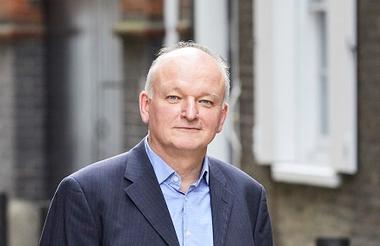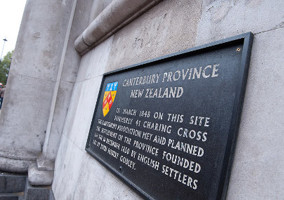Charities must put more pressure on government and charitable foundations to pay core costs, an audience of charity finance specialists heard yesterday.
Speaking during a panel session on core costs at the Charity Finance Summit, Paul Streets, chief executive of the Lloyds Bank Foundation for England and Wales, said that charities needed to be stronger in demanding that government, the public and foundations all give either unrestricted funds, or enough restricted funds to cover all core costs.
“You have to make the case yourself for you core costs,” he said. “We’ve done ourselves no favours. We seem to have a race to the bottom when it comes to pretending we have lower and lower administration costs.
“It’s right to put pressure on funders, but charities are culpable. If you don’t ask for core costs you will go under, and perhaps you deserve to go under.
“Charities go cap in hand to government and say ‘Kick us, and give us what you want.’ We’ve worked with charities who’ve walked away, and the government departments have come back and said ‘We really need you’. Charities have more power than they realise. It’s time to see the sector exercise its power.”
It's unethical to cross-subsidise
He said that charities needed to stop bidding for contracts and then cross-subsidising with donations.
“It’s completely unethical to be using resources donated by the public to subsidise government contracts,” he said. “And it’s unfair and anti-competitive too, because it means that charities which have access to public donations can underbid others who don’t. Which often means big national charities putting smaller ones out of business.”
He said his own charity had started to make unrestricted grants, and that many other funders were doing the same.
“Previously we used to say we funded core costs but we did it in a way which was very difficult,” he said. “We would say “You can’t have £52 to spend on letterheads, or something like that”. It was complete nonsense. We’ve now decided we will give you the money and you can spend it on anything you like.”
He said charities needed to find more ways to put pressure on charities.
“You have to take funders to task,” he said. “I work with a lot of boards who are sympathetic to the idea that their charity needs to spend more on its core functions but they can’t because they haven’t got the unrestricted money and you can’t spend what you don’t have.
“Funders still have an obsession with the new and the shiny and the innovative. Some of the well known TV funders still tell everyone they don’t have any costs. ‘All of our money goes to the front line’. It’s a complete myth.”
Not enough leadership from charities
Tim Boyes-Watson, global director of alliances and advocacy at Humentum, a charity which supports the NGO network, agreed with Streets’ approach.
“What’s worrying is that the leadership on this issue is coming from institutional donors,” he said. “Not enough leadership is coming from us, charities.
“If you don’t ask for core costs, you won’t invest enough in your organisations to be sustainable and run it effectively. You will be dominated by competitors who are able to cross-subsidise. And all of your unrestricted income will be gobbled up by essential services, and there will be nothing left to innovate and progress. You become more donor-dependent and less willing to speak out.”
He said that if charities presented the evidence strongly enough they could persuade donors to fund all core costs. He said that charities had done this with DfID.
“We went to them with evidence,” he said. “And it worked.”
|
Related articles











